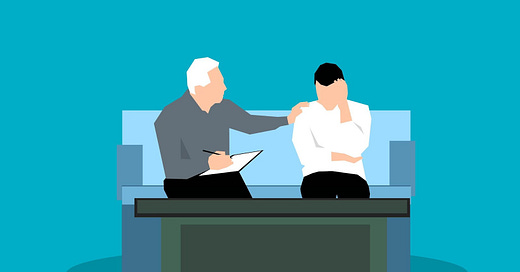The Important of Empathy in Healthcare
Hello, Future Physicians!
I hope you all are doing well! This newsletter is about the importance of empathy with becoming a doctor. The Mirriam-Webster Dictionary defines empathy as “the action of understanding, being aware of, being sensitive to, and vicariously experiencing the feelings, thoughts, and experience of another.” The ability to empathize is an important skill for doctors to develop as it can greatly improve the interaction between them and the patient. Having a deep understanding of one another’s concerns and issues can be powerful in understanding what they may be going through. It can go great lengths in relationship development in medicine and in life in general.
Empathy and Communication:
Empathy allows the doctor to better communicate with a patient. When a doctor can understand that a patient may not fully understand some of the medical terminology that they may use, it can allow them to adjust the explanation to the patient’s need and level of understanding of the topic. In order to do this, the doctor must imagine the patient’s situation. They also should be open to answering any clarifying questions that the patient may have. When the doctor and patient are able to be on the same page, it can reduce the risk for confusion later on. Health is vitally important, so it is important that both the doctor and the patient are informed about what is going on. A patient can empathize with a doctor by understanding that their job can be demanding and that they have other patients to see. It is important for both doctors and patients to treat one another with respect and acknowledge their concerns as well as unique perspectives. Patients should try and clearly communicate their concerns to their doctor to the best of their ability; they should understand that doctors cannot easily work to solve problems that they are unaware of. Doctors should treat each patient to the best of their ability.
Empathy and Relationship Building:
When doctors and patients are able to empathize with one another, it can help strengthen the relationship between the two. As previously mentioned, having a doctor that genuinely listens to a patient’s concerns can allow the patient to develop trust with their doctor. For a patient, having a doctor that they can trust can have a substantial impact on whether or not they choose to return to that doctor or want to visit the doctor regularly. For doctors, a patient that has empathy can allow them to present their perspective of the situation and evaluate it with the patient. When a doctor demonstrates active listening with a patient, it can allow the patient to feel comfortable with telling them more about their situation, allowing for more information to be presented about any issues that they may be experiencing. Having mutual respect for one another can also help build the doctor-patient relationship, which is a contributing part of having a good doctor’s visit experience.
Empathy and Treating Patients:
As previously mentioned, a doctor who empathizes with patients can allow the patients to feel comfortable at their appointment and with sharing medical information with their doctor. As doctors listen to the concerns of their patients, it can allow them to sometimes be able to feel and sense the severity of the situation, thus allowing the doctor to have more information to use as reasoning for a potential treatment plan. Empathy can also allow doctors to understand a patient’s level of comfortability with going to the doctor and if any components of their visit are troubling for them.
Some ways to practice empathy include:
Practice active listening
Imagining yourself in another person’s position
Asking questions about another person’s experience if they are comfortable with it
Acknowledge another person’s perspective and point of view
Reflect on what may make a certain situation difficult for someone else given their circumstances
Exhibit curiosity and concern for learning about what someone else is experiencing
Be willing to listen to points of view that are different than your own
Determine whether or not you may hold any biases in any particular situation
About Future Physicians: Future Physicians is a nonprofit organization that connects aspiring medical school students with professional development opportunities, such as shadowing, research, and internships. We also send out newsletters every week about a wide variety of medical topics. If you are interested in medical school or the medical field, please feel free to sign up for our newsletter below to learn more about medicine and our organization. Also, please share Future Physicians with a friend to help them achieve their goals as well. Thank you so much for reading this and supporting the Future Physicians team and our goals.
Keep chasing your goals!
The Future Physicians Newsletter Team




